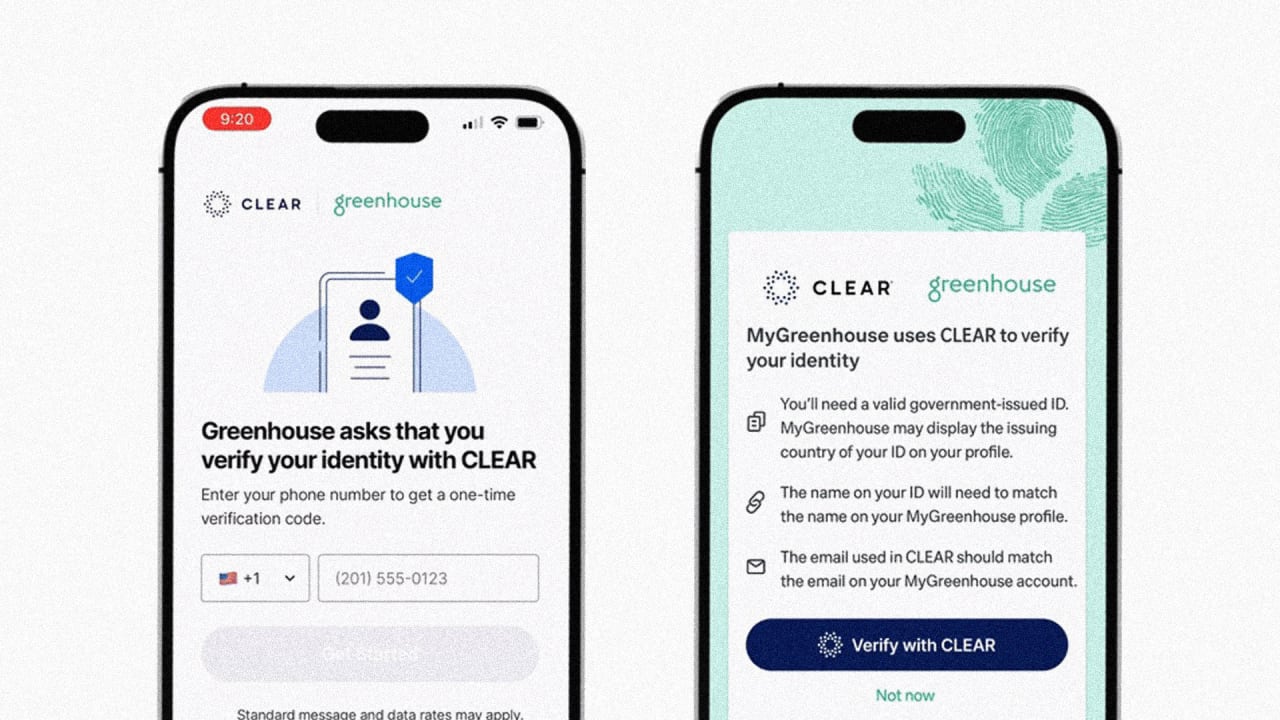I won a work lottery but used a fake name, can a company strand you if you’re fired on a work trip, and more
It’s five answers to five questions. Here we go… 1. I won a work lottery, but I used a fake name One of my coworkers went on parental leave. While she was still in the office, she had a fun “baby lottery,” where you could submit $5 to a pool to guess the weight, birth […] The post I won a work lottery but used a fake name, can a company strand you if you’re fired on a work trip, and more appeared first on Ask a Manager.

It’s five answers to five questions. Here we go…
1. I won a work lottery, but I used a fake name
One of my coworkers went on parental leave. While she was still in the office, she had a fun “baby lottery,” where you could submit $5 to a pool to guess the weight, birth date, and assigned sex of the baby. The person who gets the most accurate guesses on all three wins all the money in the pool.
Submitting to the lottery required two things: making a public account on the site she organized the lottery on, and Venmo’ing the money to her.
I couldn’t make a guest account on the site, so I made an account with a fake name and throwaway email. I do that to limit spam, as well as how much of my data can be sent to data brokers, ad agencies, etc. My fake name was something like “Bla Blablabla” since it wanted me to put it a first and last name.
As for the money, I gave my pregnant coworker a five dollar bill because when you share your Venmo with someone, you can see their transactions (and the only reason I have a Venmo is for mutual aid, bail funds, and donating to causes they will likely consider controversial, so I didn’t want my coworkers to see it).
When the baby was born, I was preoccupied with a client and missed some communication among my coworkers. It turns out, I won! But my coworkers naturally didn’t know who Bla Blablabla was (and they were also acting like something was off-putting about it).
The pool is about $50, but I won’t be able to reach out to my coworker until after her parental leave ends next month. About half of the coworkers involved have denied it when asked if they’re Bla, and Bla is the only one who used a fake name. I think process of elimination will reveal it’s me, but how to I explain to my coworker that it’s me and that I did it to preserve some privacy? Or is it likely that I will just have to forget about the $50?
Wait, you need to say something now! If people are speculating about who Bla is and who won, you need to speak up and say, “Oh, that’s me — I never put my real name in those sites because I don’t want my data shared.” However, it’s going to be a little weird to speak up now if you didn’t when they were discussing it in front of earlier! If that’s the case, can you feasibly just say you weren’t paying attention?
If you wait until your coworker returns from leave and reveal yourself then, it’s likely to seem really odd that you didn’t speak up earlier when your coworkers were trying to solve the mystery. Say something to your coworkers now.
2. Can I just reject all male BYU alum candidates?
I have a question about hiring candidates from religious-affiliated colleges (actually, one in particular: Brigham Young University) and whether it would be discriminatory to outright reject male candidates who attended BYU.
I wear many hats at a small-ish graphic design firm in Colorado including having a hand in screening resumes, interviewing, hiring, and onboarding (though I’m not technically in recruiting or HR). In the past 4 years, I have had a hand in hiring two men from this alma mater, and one was already here when I arrived. (So total sample size: three.) They have all been at best a bad culture fit and at worst highly problematic. Ultimately, none were with us more than ten months.
For example, they all had issues to varying degrees working under women (we are a woman-owned and majority female company) and were proudly conservative (while we don’t make a habit of discussing politics, we are definitely on the progressive/liberal side). One complained multiple times about office attire —mind you, we have no problem with our employees staying within our dress code— but he found things as innocuous as sleeveless blouses and skirts-with-any-length slits to be “distracting.” Another frequently talked about his wife in a very sexist and off-putting way. (Most egregiously he told a story about “not letting” her go to the ER when she was seriously ill and begging him to take her. He told this —loudly, out in the open floor plan— as though it were a funny story.) None of these three men opted to put pronouns in their email signatures, and while it’s not a requirement at our company, we pride ourselves on being inclusive, and almost all of our employees choose to. That these three men with the same schooling background comprise fully half of those who haven’t used pronouns in their signatures since I’ve been at the company is a data point I can’t ignore.
I now roll my eyes whenever I come across resumes with male-seeming names and BYU as the alma mater, and am tempted to toss them straight into the recycling bin without a second thought. Would it be religious (or sexist) discrimination if I did?
Yes. It’s illegal to decide you won’t consider candidates based on sex or religion, which is what this would be. It doesn’t matter that you’ve seen a pattern in those hires previously; it would be just as illegal as deciding “I’ve seen a pattern by race X or national origin Y and so I won’t consider candidates from those groups anymore.” The law requires you to consider candidates individually, without regard for race, religion, sex (including transgender status, sexual orientation, and pregnancy), national origin, age (if 40 or older), disability, and genetic information.
You can certainly revamp your hiring practices to screen for people who are aligned with your culture, capable of working effectively with women, etc. But you need to do it by assessing candidates individually, not by lumping them into demographic groups.
3. Can a company legally leave you stranded if you’re fired on a work trip?
My partner got sober before we met, after a rock-bottom incident. While on a work trip in another state, he was fired not for his work, but for his poor behavior at the hotel bar, which was witnessed by some of his coworkers.
After firing him, the company canceled his return flight and he was forced to find his own way home.
My question is, is that legal? If you’re fired on a work trip, can they just leave you behind wherever you are? If he had written to you 10+ years ago for advice on negotiating with the company for his return travel, what would you have told him?
In most states, it would be legal. California would almost definitely be an exception, because their state law requires employers to pay for all business expenses — and a flight back home after a work trip is a business expense.
In all states, however, what that employer did was profoundly shitty. Regardless of what your partner did at the hotel bar, his employer — having brought him out there for work –had a responsibility to get him back home. The consequence for his behavior was that he lost his job; it shouldn’t have been that he was stranded in a different state.
At the time, ideally he would have framed it as, “When I was sent on this trip, it was with the agreement that I would be returned home as well. I would not have undertaken this trip at my own expense or if there was a risk I’d be stranded once I arrived. I of course accept my firing and I feel deep regret about what happened, but I do need you to keep your agreement to get me back home.”
Related:
my company is threatening to strand me out of town if I won’t work an extra day
4. Should I ask my boss if she’s job-searching?
There have been some shake-ups at my organization recently that are having a big impact on my department. I’m very confident that my job is safe, but I’m worried about my boss. Our grandboss just left and now she’s reporting directly to the CEO. It’s a huge change in responsibilities for her, for the immediate future at least. The thing is, I have no idea if she actually wants those responsibilities. She was already overwhelmed before this all happened!
She’s one of the biggest reasons I’m happy at work. We’ve worked together for about seven years, and it’s been the best working relationship I’ve ever had (and our friendly side is great too). I’ve had my eye open for other jobs elsewhere, just in case, but otherwise I feel like I’ll be okay however things shake out as long as I’m still working for her, and I am not searching actively.
But now I’m starting to worry that this might be too much and she’ll be looking to move on herself. I’ve always felt like she was a “lifer” for our mission, but maybe I’m wrong. If she leaves, that’s not a guarantee that I’ll want to leave too — I’m open to the possibility of having another great boss! — but if she’s looking, I’ll probably start looking around more actively too.
Is it even appropriate to ask her if she’s job hunting, though? I know her asking me wouldn’t be okay (or at least, she shouldn’t expect an honest response), but does that go both ways?
I wouldn’t ask. If she doesn’t feel comfortable answering candidly, you’ll have put her in a difficult position. And even if she honestly tells you today that she’s not looking, something could change tomorrow — she could have a family crisis or a medical situation, or an opportunity she didn’t expect could fall in her lap. So it doesn’t tell you that much even if she does feel comfortable answering.
That said, since you have a good relationship, you can certainly ask how she’s feeling about the changes to her job and how that’s going. You might come away from that feeling more informed. Or you might not! But don’t ask if she’s job-searching.
5. Can I really just ask people to refer me business?
I’m in a professional job, and at the stage of my career where I need to bring in more business. This is complicated by the fact that I’ve recently returned to a city after 10 years working on the opposite coast.
It’s also complicated by the fact that I really hate sounding pushy, asking for favors, or seeming like I’m trying to sell someone something. Until now, I’ve employed the “build it, and they will come“ approach to my career, meaning I’ve done really good work and just assumed my work would speak for itself, that has worked out fine until now.
But now, especially as I’m trying to reestablish myself in my city, I’m thinking I probably need to take a more active approach. I’ve been reaching out to people, reconnecting, setting up coffees/lunches, letting them know I’m back in town, etc., but I stop myself from being direct because it makes me so uncomfortable.
What I really want to say is, “Listen, if you know anyone who needs X service, please send them my way. I’ll take good care of them.” But that makes me feel gross, so I just talk generally about my job and my life and catch up on small talk, and then hope that when they come across someone in the future who’s looking for X, they will happen to connect the dots themselves somehow.
Am I doing this wrong? Do people really come right out and say “please refer me business” or “if you know anyone who needs X, please give them my name”? Or, am I doing this right? Are people likely to be turned off by direct requests for business referrals? Should I stick to my subtle approach and just build relationships, hoping that will eventually pay off?
Yes, people really do say “If you know anyone who needs X, send them my way and I’ll take good care of them.” What can feel slimy is if it looks like that’s the only reason you contacted them but you tried to disguise it as a social catch-up — that can leave people feeling like they thought they were setting aside time to reconnect with you, when you only saw them as a business prospect. So it shouldn’t be a major focus of the meeting unless you disclose it ahead of time and they agree to meet with full knowledge of the agenda, or you need to seem genuinely interested in connecting/connecting up with them beyond the business interest.
If the only reason you’re connecting with them now really is just the business stuff, personally I’d rather you be up-front about it so it uses less of my time. I’d have no problem at all with an email out of the blue from an acquaintance with some brief pleasantries and a clear networking request (and then presumably something like “let me know if you want to catch up some time — I’d love to see you”). I’d be much more annoyed if I carved out time for coffee or lunch without realizing the whole reason was so you could pitch me.
Related:
how do I network without being too transactional?
The post I won a work lottery but used a fake name, can a company strand you if you’re fired on a work trip, and more appeared first on Ask a Manager.




















































































































































